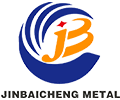The versatile world of welded steel pipes: a comprehensive overview
In construction and manufacturing, welded steel pipe has become a cornerstone material, combining strength, durability and versatility. These pipes are made by welding together flat steel plates or steel strips, resulting in a product that can be customized to a variety of specifications and applications. This article provides an in-depth look at the characteristics, size ranges, and primary uses of welded steel pipe, with a particular focus on the ASTM A53 (ASME SA53) carbon steel pipe specification.
What is welded steel pipe?
Welded steel pipes are made by shaping flat steel plates into cylindrical shapes and then welding them along the seams. The process can produce pipes of various sizes and thicknesses, making them suitable for a wide range of applications. The welding process not only enhances the structural integrity of the pipe, but also allows for efficient use of materials, reducing waste and costs.
Welded steel pipe size range
Welded steel pipes are available in a variety of sizes to meet various industrial needs. These pipes are available in sizes ranging from NPS 1/8” to NPS 26 in accordance with the ASTM A53 specification covering seamless, welded black and hot-dip galvanized steel pipe. This broad range allows for design and application flexibility, catering to applications ranging from small pipes Various needs from engineering to large industrial facilities.
The Nominal Pipe Size (NPS) system is a standardized method of measuring pipe size, where the size refers to the approximate inside diameter of the pipe. For example, NPS 1/8” pipe has an inside diameter of approximately 0.405 inches, while NPS 26 pipe has a much larger inside diameter of 26 inches. This variety ensures that welded steel pipe can meet the specific requirements of different projects, whether it involves conveying fluids , structural support or other applications.
Main uses of welded steel pipes
Welded steel pipes are widely used in many industries due to their strong performance and adaptability. Here are some major applications:
1. Building and Structural Applications: Welded steel pipes are widely used for structural support in buildings. Due to their high strength-to-weight ratio, they are often used in building frames, bridges, and other infrastructure projects.
2. Oil and Gas Industry: The oil and gas industry relies heavily on welded steel pipes to transport crude oil, natural gas, and other fluids. ASTM A53 specifications ensure these pipes can withstand high pressures and corrosive environments, making them ideal for this industry.
3. Water Supply and Distribution: Welded steel pipe is commonly used in municipal water supply systems. Their durability and corrosion resistance make them suitable for conveying drinking water and wastewater.
4. Manufacturing and Industrial Applications: In manufacturing, welded steel pipe is used in a variety of processes, including the production of machinery, equipment, and other industrial components. Their versatility allows customization to meet specific manufacturing needs.
5. Automotive Industry: The automotive industry utilizes welded steel pipes to produce exhaust systems, chassis components, and other critical components. The strength and reliability of these pipes are critical to ensuring vehicle safety and performance.
6. HVAC Systems: Welded steel pipes are also used in heating, ventilation, and air conditioning (HVAC) systems. They are used in ductwork and ducts to provide efficient air flow and temperature control in residential and commercial buildings.
In conclusion
Welded steel pipe is an integral part of every industry, offering strength, versatility and cost-effectiveness. Available in a range of sizes to fit a variety of applications, these pipes are critical for construction, oil and gas, water supply, manufacturing, automotive and HVAC systems. ASTM A53 (ASME SA53) specifications further enhance their appeal, ensuring they meet stringent quality and performance standards.
As the industry continues to evolve and the need for reliable materials continues to grow, welded steel pipe will undoubtedly remain an important resource. Their ability to adapt to different specifications and applications makes them the first choice for engineers, architects and manufacturers alike. Whether for structural support, fluid transport or industrial processes, welded steel pipes will play a vital role in shaping the future of construction and manufacturing.
Post time: Oct-16-2024



